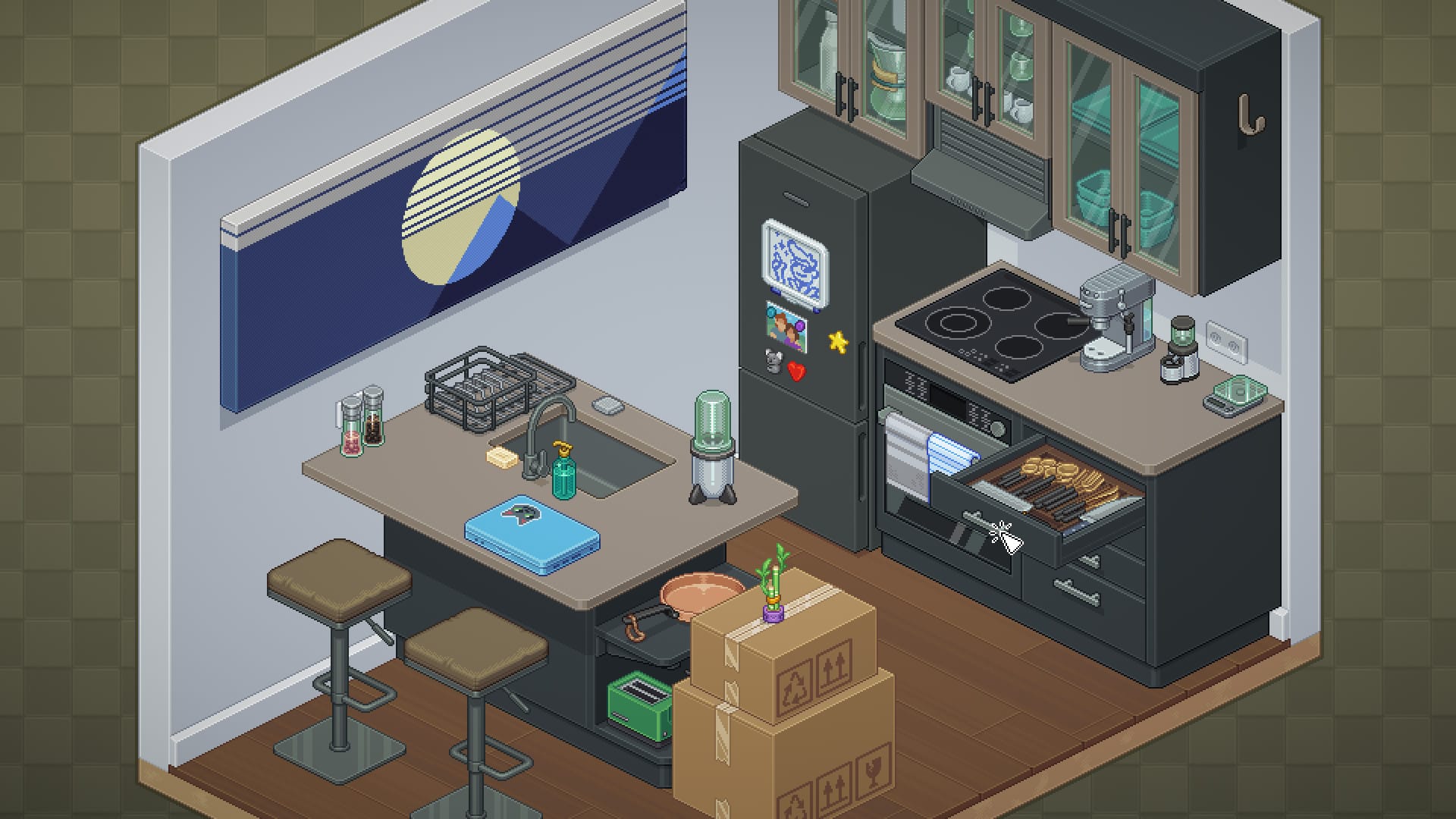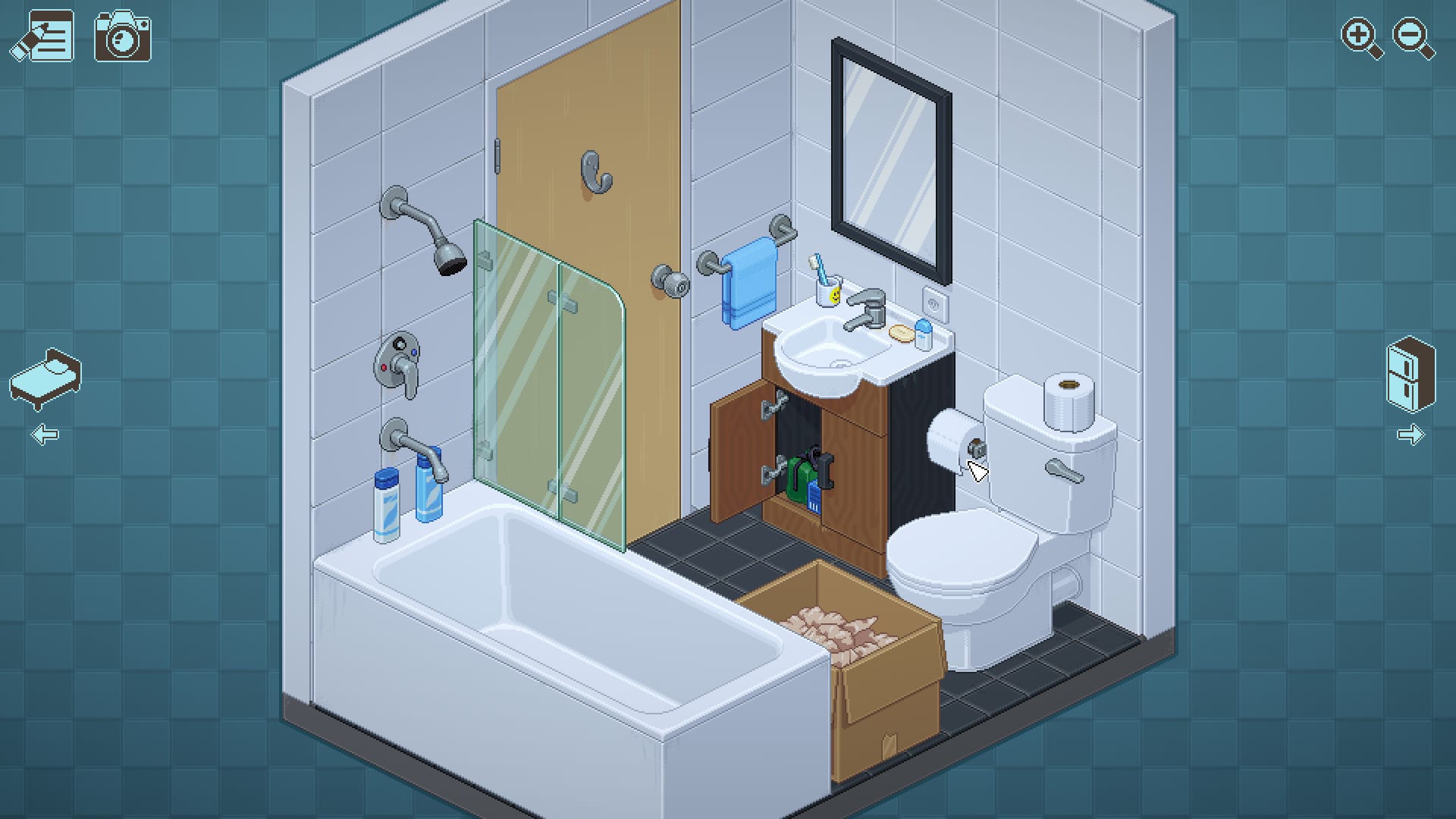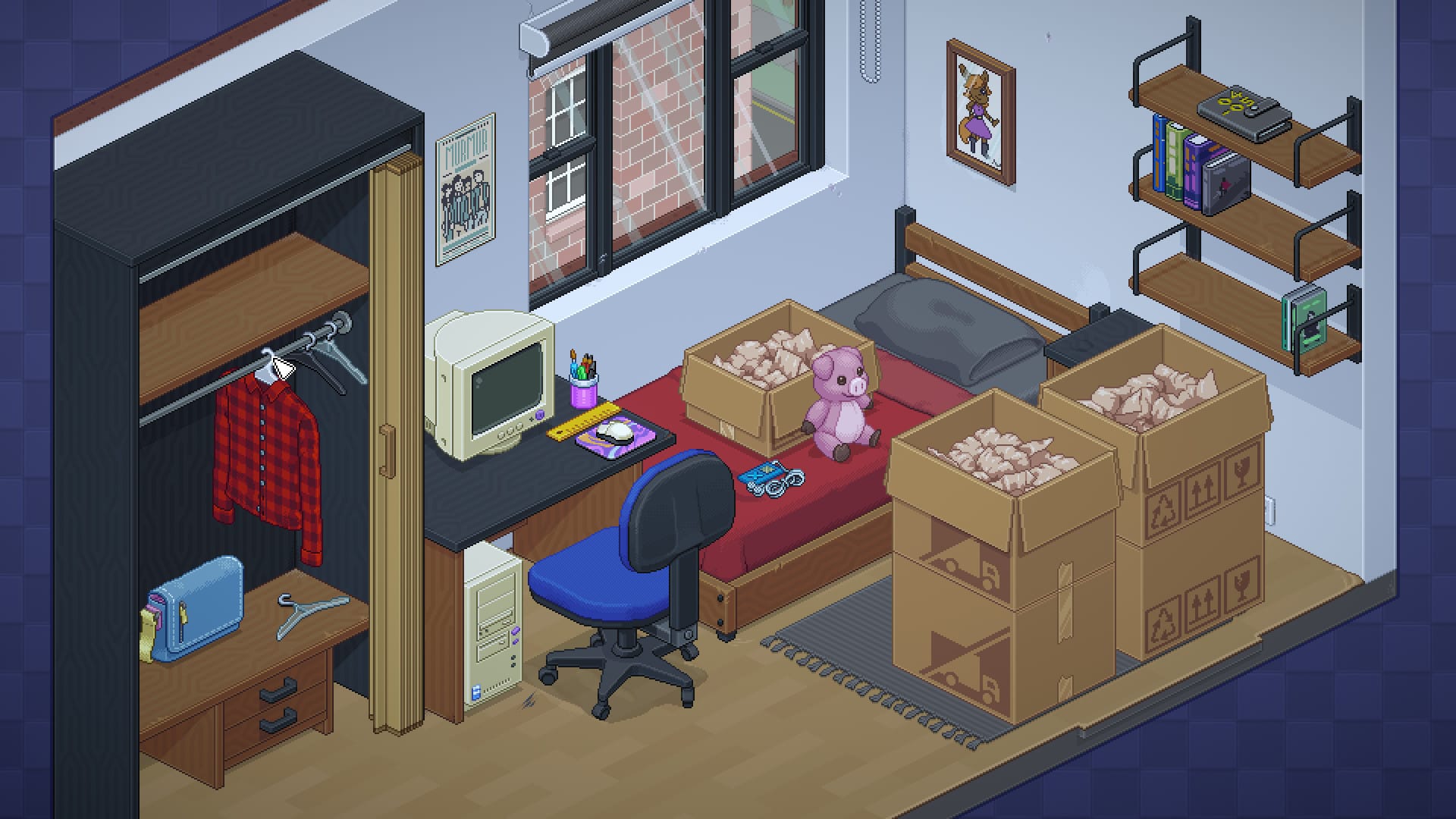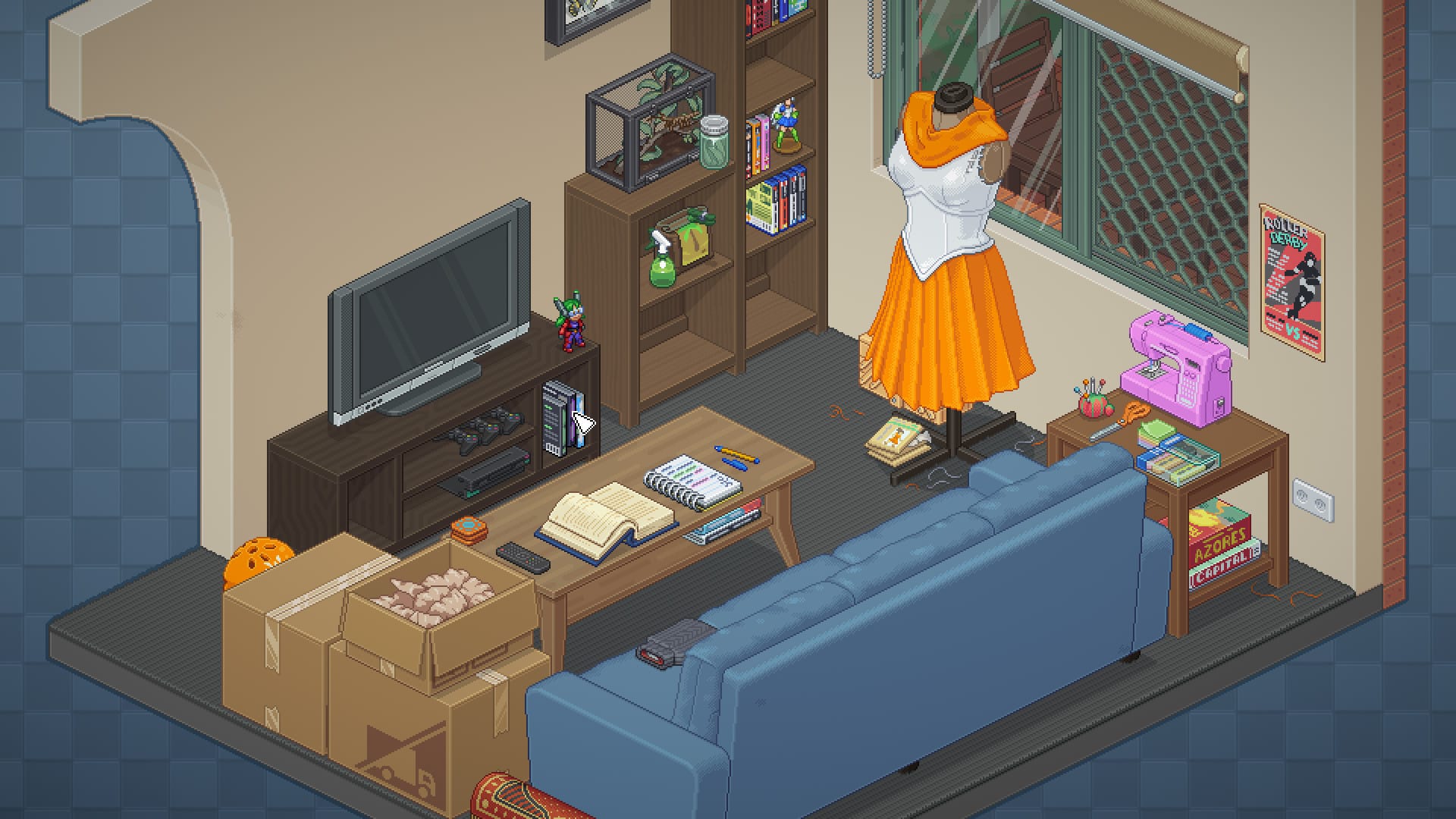WordPlayer: I’m Still Thinking About The Diploma In Unpacking
Examining the best piece of video game narrative design in years


In the 2010 chapter of Unpacking, Witchbeam's wonderful little game about the ritual of unpacking your possessions in a new home, the unnamed protagonist moves in with her boyfriend. If you've played the game, you almost certainly remember this level, even if some of the other moments in the game have started to blur in your memory. It's the only level in the game with a villain, after all.
As you unpack the protagonist's boxes in this new guy's house, it's immediately apparent to the player - a relative outsider to the relationship - that these two are not compatible. Their styles clash. The man has not put enough effort into opening up his space for her. You are not permitted to move any of his things. There's a creeping sense of dread throughout the level, a feeling that your character is making a mistake. When the next level is her moving back into her family home two years later, there's relief in the backslide - here's a chance for our character to recoup and figure out how to build towards a life she's happier in.
There's one object in this level that really sells the awfulness of this man, though - and it's such a good moment that even if I hadn't mentioned it in the name of this story, I think most people who have played Unpacking would know exactly what I was talking about without me needing to say it.
Your character's college diploma, framed and ready, cannot be proudly displayed within this house. It can be hung in the bathroom, it can be packed under the bed, but it cannot be hung in the living room or the bedroom or anywhere where it might make aesthetic sense. It's at this moment that it becomes clear that our protagonist is trying to fit into someone else's space rather than being allowed to cultivate her own.

It's at this moment that it becomes clear that our protagonist is trying to fit into someone else's space rather than being allowed to cultivate her own.
Unpacking came out three years ago now, and I've thought about this section, by my estimate, one million times since. For my money, it's the most elegant piece of narrative design I've seen in a game this decade, a powerful reveal tied into mechanics, a deep story told without a word being spoken. Searching all over the house for a good space and eventually realising that there isn't one is extremely powerful.
There's a wrinkle here, one that has complicated my reverence for this moment. My heart broke for this woman, and yet, in my own life, I've never cared about how my degree is displayed. After finishing my Masters, I tucked the piece of paper into a cheap K-Mart frame. It has, in my last few homes, been tucked away, never placed anywhere with much pride. I've tucked it away wherever it will fit, never thinking much about whether it's worth displaying.
My Master's thesis was about narrative in games, which is sort of my whole thing now. I specialise in narrative design, writing about story-rich games, and consulting with developers to improve the writing and storytelling in their games. My degree is a piece of paper certifying my expertise in this field, one that I worked hard to earn, and yet I've been far more emotionally invested in this pixelated piece of framed paper. There's levels of irony here that are difficult to untangle. But I had a day recently that gave me more perspective on all of this.
In early December, I had a particularly busy work day that happened to fall on my birthday. I was out of the house first thing in the morning and did not get back until 10pm, having spent almost the entire day in meetings. I was exhausted, but my fiancée, Lisa, had promised that there was a surprise waiting for me at home. I was too busy all day to even speculate on what this might be, but I knew that it was something that she had been working on, and that it had been something time-consuming and labour-intensive.

My degree is a piece of paper certifying my expertise in this field, one that I worked hard to earn, and yet I've been far more emotionally invested in this pixelated piece of framed paper.
When I came home, she guided me to the home office. Lisa had spent part of her day putting up a shelf above my desk, and setting up a series of frames above the shelf; she'd filled the frames with posters she'd bought me in the past, magazines I'd written in, and photo frames that I'd had positioned rather awkwardly on my desk. She had redesigned the space better to let me display the things I care about more effectively.
Now, as I write this, my Master's degree - which had, until recently, been wedged into the thin space between my office desk and the wall - is framed on the wall above me. It was put there by someone who loves me. And now, the piece of paper matters to me more than it did before.
When Lisa and I moved in together, it was important to both of us that we found somewhere new to live rather than having her move into the place I was renting (which was not a ridiculous thing to do in the Adelaide rental market back in early 2020, pre-lockdown: admittedly, things have changed a lot since then). Every decision I'd made to keep my degree tucked away had been fully my own. But I also always knew that if I'd wanted to treat it more seriously, I would have been supported in that.
Decisions in a shared home are often a matter of light negotiation, but there's always a central overriding question: is this something the other person cares about on a deeper level than I do? And if the answer is "yes", then that needs to factor in. Putting away the diploma in Unpacking carries a lot of weight not because the diploma must mean so much to the protagonist, but because it clearly means nothing to the person she's moving in with, and yet by not making any space he's still the one ultimately deciding where it needs to go. Whether she wants to hang it on a wall or not, he's not giving her the option.

Decisions in a shared home are often a matter of light negotiation, but there's always a central overriding question: is this something the other person cares about on a deeper level than I do?
Part of the power of Witchbeam's game is that envisions a good home as a place that you fit into, that doesn't just accommodate your physical presence but which shifts to reflect the lives of the people in it, and where the objects and aesthetics that are most important to them are proudly displayed: their action figures, their clothes, their walking cane, their toothbrush, the piece of paper they got at the end of a degree.
In the game's final level, the protagonist is setting up the home where they'll live with their partner and baby - and for the life of me, I can't remember what happens to the diploma in that level. Under happier circumstances, the diploma on the wall is just part of the tapestry, rather than the symbolic linchpin of the whole relationship. The piece of paper hanging on my wall claims that I'm particularly qualified to comment on it, but I have to tip my cap - I think Unpacking's diploma demonstrates a deeper understanding of narrative in games than the diploma on my wall does.